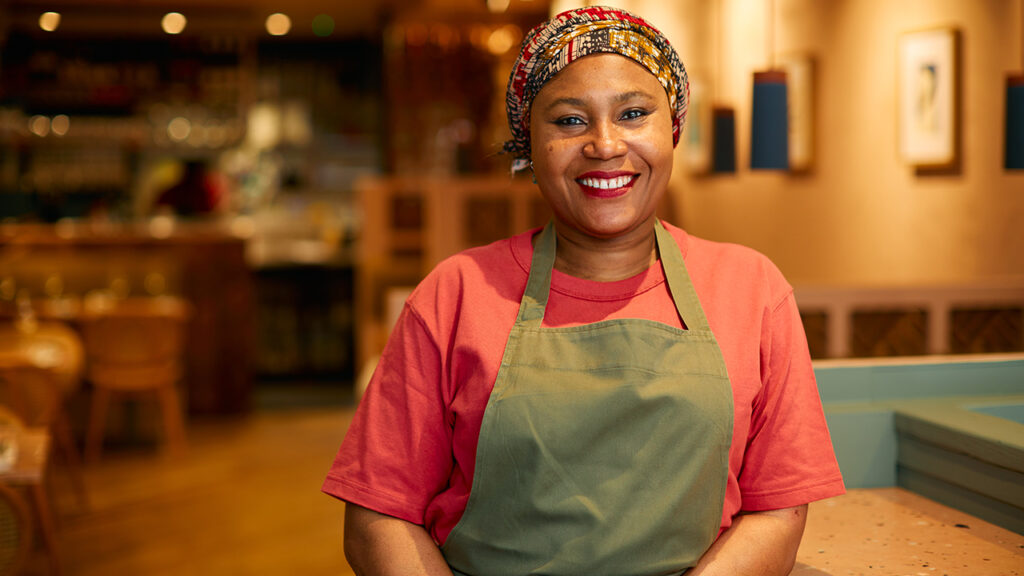 Can you share with us your journey and how you became a researcher in public health?
Can you share with us your journey and how you became a researcher in public health?
I was born and raised in the Northern region of Nigeria in West Africa, which has a high record of health issues. The most challenging issues I observed pertained to sexual and reproductive health, including maternal and neonatal mortality, low birth weights, and complications arising from substance abuse and behavioral addictions. Hence, I became passionate about contributing to solving some of these health problems and decided to study Medicine at the bachelor’s level. When I began to practice, I served in Northern Nigeria as a Medical Officer with the Kaduna State Ministry of Health. I managed individuals with several terminal issues that could have been prevented. That prompted me to realize that “Prevention is indeed better than cure” and to consider a postgraduate study in a specialized area that emphasizes prevention, which will provide me with an in-depth understanding of populations’ health and health systems.
In your experience, you have had affiliations with several institutions across different countries, including Ukraine, Ghana, Germany, and the US; what influenced your choices of these universities?
Okay, I have had a long journey, but I will try to summarize. I began this journey in 2006 in Nigeria when I gained admission into Ahmadu Bello University, Kaduna, for a degree in Medicine. However, industrial strikes were a common practice back then in Nigeria, which you know can be challenging for a student. With several industrial strikes within my three years in school, I decided to go to Ukraine based on the recommendation of my anatomy professor. I started all over again from 2009 to 2014 in Lugansk State Medical University, Ukraine, and when the initial war began in 2014, I transferred to Ternopil, where I graduated in 2015.
Shortly after I started practicing, I won the prestigious African Union scholarship to do my master’s in Reproductive Health at the Pan African University of Life and Earth Sciences, Ibadan, Nigeria, from 2017 to 2019, while I still worked as a Medical Officer. After this program, in 2021, I was awarded the DAAD scholarship to study for a PhD in Population Health and Policy at the University of Ghana, Ghana.
DAAD is a German academic exchange service scholarship. During this time, I won a summer school scholarship to an Education and Research Oriented Training in Health Sciences conducted by the Hamburg University of Applied Sciences in cooperation with the Bernhard Nocht Institute of Tropical Medicine in Germany. Then, finally, in 2022, I was awarded a scholarship to the prestigious Texas Tech University to study Addictive Disorders and Recovery Studies, which is one of its kind in the United States of America in which I am currently focusing on the intersection between substance use and disorders particularly alcohol with risky sexual behaviors. So, I will say that my academic ability has earned me several awards and scholarships, which have influenced my choice and opened me up to prominent research.
What would you say inspired you to focus your research on the relationship between alcohol consumption and sexual health?
No doubt my experiences with my patients. Alcohol consumption is a critical public health concern that impacts the sexual health of youths and young adults worldwide. However, witnessing the chaos of alcohol-induced risky sexual behaviours by youths, cases such as HIV, STIs, and unintended pregnancies, especially among poor and underserved communities, made me sick to my bones. This is where my research is particularly crucial to helping understand and devise strategies that can reduce STI transmission and the economic impact of unplanned pregnancies.
Can you elaborate on the “STI scare” concept and its importance in your research?
The “STI scare” concept is the fear or concern individuals may have about contracting Sexually Transmitted Infections following engaging in risky sexual behaviours under the influence of alcohol. This fear is a psychological factor that influences individuals’ perceptions of risk and their subsequent sexual behaviours. So, as a researcher, my goal is to understand the relationship between alcohol consumption, risky sexual activities, and the ensuing STI scare to tailor interventions that specifically address these concerns.
What challenges have you encountered in your research, and how have you addressed them?
A major challenge is obtaining correct and reliable data on alcohol use and risky sexual behaviours among youths and young adults. There is always the tendency to underreport sensitive behaviours. I will also add the difficulties in accessing marginalized or hard-to-reach groups.
How have you tried to overcome some of these challenges?
I have ensured confidentiality and anonymity in data collection and employed validated measurement tools to triangulate the findings of groups I worked with. Also, I prioritize building rapport and trust with participants and collaborating with community organizations. This has been helpful, but I recognize more still needs to be done.
What has been the most surprising finding of your research so far?
The most surprising is the extent to which genetic factors can influence addiction to alcohol and risky sexual behaviours. For example, some of our studies have shown that certain genetic variations can predispose individuals to alcohol dependence and impulsive behaviours, which increases their likelihood of engaging in risky sexual activities while under the influence of alcohol.
Based on your research, what advice do you have for youths and young adults?
I would say, “Understand and be aware of the risks associated with alcohol consumption and its direct impact on sexual health.” It affects not just yourself but loved ones and may even affect unborn generations. Hence, make informed, responsible choices that will enhance your sexual and reproductive health.
Finally, what do you hope your legacy in the field of public health will be?
My ambition is to leave an indelible mark on public health through research evidence that unravels the complexities of alcohol-influenced risky sexual behaviours, particularly among young adults and youths. I want to enlighten and empower individuals to make healthier life choices. This is what keeps me going.












